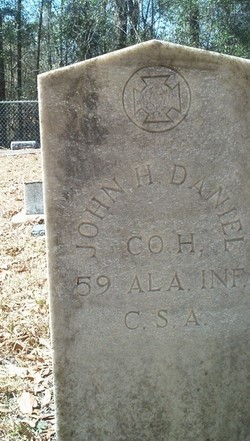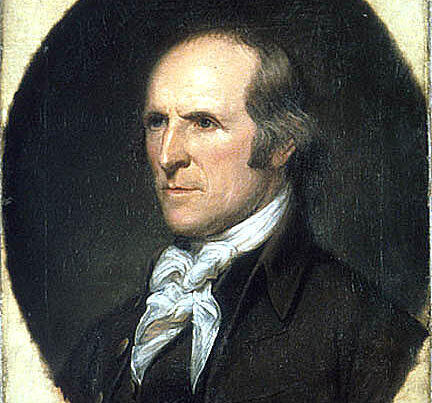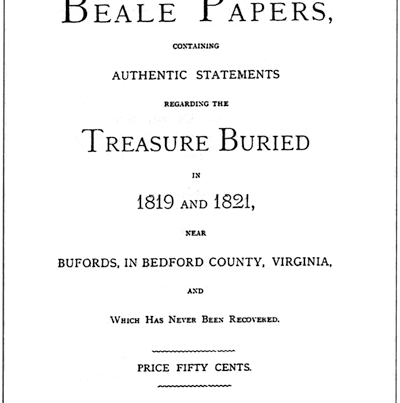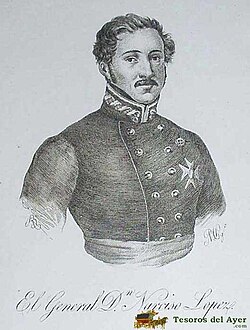I am a descendant of a family of Confederate soldiers, and I have been told I should be embarrassed. A liberal activist told me recently that all Confederates were racist degenerates who deserve nothing except desecration of their statues and memorials. I usually avoid deep discussions of this topic on social media, because the predicted result is that people don’t really want to learn anything new. They just want to reinforce what they already believe so they can beat you over the head with their own politics. In the 1999 film The Matrix, there is a pivotal scene called Red Pill/Blue Pill, and it was so transformational that it became part of our cultural lexicon. Even Wikipedia contains a remarkably accurate description of this phenomena which it explains as follows: “a choice between the willingness to learn a potentially unsettling or life-changing truth by taking the red pill or remaining in contented ignorance with the blue pill.” This article is offering you the red pill – it is intended as a challenge. Southerners have been begging folks to try the red pill for quite a long time so they can take the effort to push past all the memorized slogans and learn the truth for once.
Activists started seriously targeting Confederate memorials and statues after that racist lunatic Dylan Roof went murderous in South Carolina. The U.S. Government has been zealously taking down Confederate statues and memorials for several years, and the U.S. Military is now fully committed to renaming all bases and facilities previously named for Confederates into something more “pleasant.” By my logic, if the United States is so ashamed of Confederates and Southerners, then I hope not one single more Southern child will volunteer for military service. Let them start spilling Woke blood from Brooklyn, Chicago, and Seattle in their endless wars. For that matter, I will never understand why any Southerner or Native American would ever fight for the U.S. Army – an organization that toiled mightily to destroy both cultures. I’m also amused to see activists attempt to appropriate Native Americans into their causes, because it’s never the end result they were hoping for. But that’s a topic for a different day.
The Daniel family patriarch that settled in south Alabama was my 4th great-grandfather, Theophilus William Daniel, who was born near Darlington, North Carolina in 1786, married Penelope Goodson in 1803 at age 17, set up the homestead in Butler County, Alabama in 1818 (Alabama became the 22nd state in 1819), raised 14 children as an Alabama farmer, was a founder of the Sweetwater Baptist Church, and was buried in the Daniel Family Cemetery near Saville, Alabama. These are photos of Theophilus William Daniel and his wife Penelope Goodson, along with a photo of their homestead before it was torn down. There is also a Daniel family legend that Penelope Goodson was descended from one of the many sisters of Pocahontas, but it seems like so is everybody in Virginia.
Many years ago, a Texas cousin of mine made a pilgrimage to the old Daniel family homestead in present-day Crenshaw County, Alabama, and she was researching the records of the Sweetwater Baptist Church in the library at nearby Greenville. There, she found a reference that puzzled her, because they were apparently taking up a collection to “buy our brother.” On page 29 of the original records, dated 9th May 1829, it says, “3. Appointed our brother, Mr. Armstrong to draw a subscription for the purpose of the purchase of our brother cesar b the association and present the same to our next conference.”
Then, on page 30, dated 13th June 1829, it says, “3. Received the subscription from the hand of our brother Mr. Armstrong for the purpose of the purchase, made by order of our conference of our brother Cesar, a man of Colour agreeable to the 3rd article of our last conference.” Why did they do that, and who was “cesar b?”
Cesar Blackwell (1769-1845) was a very popular, charismatic slave preacher who ministered to large, multiracial standing-room only congregations in Alabama (even though you were probably taught that this was impossible in the South). He was bought for $625 and freed by the Alabama Baptist Association, where he became the associate preacher at the Antioch Baptist Church near Montgomery, which was a bi-racial church (something else you were probably taught was impossible). Wait, what? Freeing slaves in Alabama before the War? Certainly, this must be a misprint. Yet, according to the 1908 pamphlet Slavery Laws in Alabama, published by John V. Denson, it initially took an act of the state legislature to free a slave in Alabama, but there were so many of those petitions filed that the legislature was forced to hand over those duties to the counties.
Although the legislative records don’t always mention slaves by name in the freedom petitions, it is noteworthy that Cesar Blackwell was given a surname, which was a typical indication of a free black. Digging into the old records is very interesting, as a number of men freed their wives and children, and even their step-children. Additionally, the Alabama Baptist Association purchased other slaves for the purpose of freeing them, and a large number of participating members were abolitionists, including my ancestral family. My cousin in Texas can only find one indication of a Daniel “borrowing” a slave for a temporary child care arrangement, although the slave was “rented” and never purchased.
My 2nd great-grandfather, John H. Daniel (grandson of Theophilus William Daniel), served in Company H of the 59th Alabama Infantry along with two of his brothers and three of his uncles – Zachariah, John, and Jackson. His Uncle Zachariah J. Daniel was the company captain until he was killed at Hatcher’s Run ten days before the surrender in 1865, and his Uncle John Adams Daniel was 4th Lieutenant and present at the Appomattox Courthouse surrender. The morning after the surrender, John Adams Daniel cut a stick from a tree, and used it as an aid in his long walk back home to Alabama, which took 30 days. That stick is still in the possession of a descendant in Cocoa, Florida. After returning to Alabama, John Adams Daniel became postmaster at Camp Creek, Alabama, which he renamed “Honoraville” in honor of his niece Leonora (Nora), who was Zachariah’s daughter. The community still carries that name to this day.
Prior to the War, the Daniel family in south Alabama worked a huge family farm without slaves – they didn’t need them. John H. Daniel was one of 12 children, and his father was one of 14 children, so the number of family field hands was always huge. In fact, all of them were staunch abolitionists, and continued the work of their churches to purchase slaves in order to free them several times. Oddly enough, there is even mention in the church records of a failed purchase of a slave named “Dock” who loved his master’s family too much, and didn’t want to leave them. He simply refused to be sold. The Alabama Baptist Association would have never been able to raise the money for slave purchase and freedom without the support and generous donations of its member congregations, of which Sweetwater and my family were instrumental. Any dissent among the church members would have resulted in church splintering, as Baptists were often notorious for splitting off and forming new churches over almost anything.
Yes, my ancestors established an abolitionist network in south Alabama in the early 19th century. However, they were not abolitionists who dragged innocent families from their homes and hacked them to death with swords in the middle of the night. They were abolitionists who fought proudly for the Confederacy. Tell me again how the War was all about slavery, and that all Confederates were racist degenerates who deserve no respect or memorial.







The author says, “Activists started seriously targeting Confederate memorials and statues after that racist lunatic Dylan Roof went murderous in South Carolina.” I would like to offer a correction. Activists started seriously targeting Confederate memorials and statues after that racist, lunatic Nikki Haley desecrated an American Veteran’s War Memorial in South Carolina by making a very visible public ridicule of the Confederate flag that was flying over said war memorial.”
Amen! I heard that!
As a person who loves the South, I’ve spent a considerable amount of time in Charleston (a once charming city}; that’s some 20-25 yrs. ago. I no longer go there. The ‘locals’ at the time were a large contingency mostly from Pennsylvania; relocated to the area ‘for the nice weather.’ The ‘city’s character had changed and I never went back, until six years ago.
What I found then was an unrecognizable city of dubious distinction. The old architecture was still there, but now there was a very vocal cacophony of [activist] tourists seemingly with an uncontrollable urge to teach the ‘traitorous’ residents, the real reason they lost The War,’ (pure yankee arrogance).
While shopping in the old Brick Market, I was literally laid over a display table by a large woman with a suitcase-sized purse (who I was sure was from New Jersey), as she hustled down the narrow aisle. A few minutes later, I saw her heading back; I braced myself. Stopping in front of me she rudely interrupted the sales lady, who was attending another lady, demanding immediately service. Her accent proved my observation of her sectional origins.
My point is, it’s not just the activist, but the rude, crude and obnoxious, particularly from the Northeast, who have replaced the charming and genteel of Charleston (and South Carolina along with the other states of the South). Sadly, with the help of the ‘locals,’ who claim their complicity was done in the name of ‘Southern progress’. It’s these ill-mannered transplants, of which Haley is a member, who possess neither knowledge, nor the desire to learn, about the state or its history. They like to spout the tripe of, unfortunately, both major political parties.
The once pristine coasts of the South have been destroyed by large high-rise condos for northerners to enjoy ‘the nice weather,’ and who overstay their welcome by contemptuously proclaiming the ignorance of the ‘hillbillies’ and the ‘treasonous’ Southern people. These are the activists who have been actively destroying the South for over 150 years! What a spectacle they make! What great slander they engender! They have taught the new generation of ACTIVISTS very well.
I agree about Charleston. About 38 years ago I visited there. Houses in some neighborhoods were just beginning to be restored. Food was fabulous, southern charm was abundant.
But, unfortunately the beach fronts were being taken over by foreigners ( northerners)
I stopped by a set of wooden steps, along the road, that went out to the beach.
I just wanted to see the ocean….. that’s all. I didn’t think it would be a big deal.
I wasn’t setting up a campsite and I had no plans to build a bonfire… etc. I just wanted a quick look at the water.
So I got out of my car, stepped on 2 wooden steps…That’s it.
Immediately, some lunatic came out of his brand new beach house… and started screaming at me at the top of his lungs. I could tell from his speech that he was no Southerner.
He said the most vile, degrading, disgusting things to me. He went on and on. It was frightening.
I got in my car, locked the doors and drove away.
As a women…..I was absolutely horrified… I still am.
Apparently only rich people are allowed to see the ocean….or just rich Northerners ???
Loved the article.
The ill mannered Yankee lot are moving into rural areas of Idaho now. Some areas of the state were founded by displaced Southerners from before, during and after the war of northern aggression. Numerous mountain tops, and communities have names from the South.
One transplanted Yankee said “your roads are so bad”! I noted that it someone else’s road not hers. I replied that the winters were hard on the roads but I’d rather pay for wheel alignments than have our taxes increased.
She looked at me with confusion and didn’t say a word.